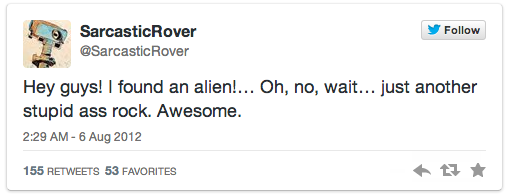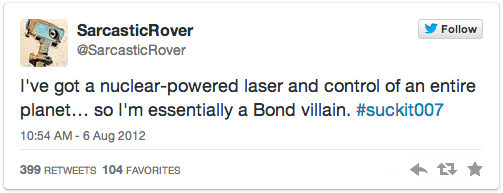By: Luke Wyckoff Issue: Big Ideas, Smart People Section: Community

ICOSA:What is Junior Chamber International (known worldwide as JCI and in parts of the USA as the Jaycees)?
GREENLEE: The organization was started in 1915 in St. Louis, Missouri, USA to give young people an opportunity for leadership development and networking. Today, the organization has almost 200,000 young men and women between the ages of 18-40 in 120 countries, but there are millions of alumni members who have turned 40, like me. Many have gone on to be heads of state, hold other political positions, are leaders in non-government organizations (NGO), are business and corporate leaders, and are making a difference in many other ways around the world. The mission of JCI is: "To provide development opportunities that empower young people to create positive change," and the vision of JCI is: "To be the leading global network of young active citizens."
ICOSA: How did you get involved?
GREENLEE: Like most members, I had heard of JCI but was then asked to join and get involved by a current member. I was 23 at the time and looking for chances to meet people and help out my community, and JCI was the perfect vehicle to do both.
ICOSA: What is your most memorable moment as a member of JCI?
GREENLEE: Being elected the JCI world president for 2007 was a real highlight of my time in JCI and my life. Having the confidence of members from around the world and the opportunity to take a year and gain that experience, meet members and people from all over the world, and advance the interests of young people, was great.
ICOSA: As the JCI world president, what were you trying to "do" around the world? How many countries did you visit?
GREENLEE: The JCI president acts as the CEO of the organization for one year. During my tenure I oversaw the board of directors and the almost 100 global member appointments. I also oversaw a 25 member internationally-based staff; served as the chief spokesperson for JCI; and worked closely with our partners like the International Chamber of Commerce, the United Nations, and the Global Compact among others. I also helped to manage the finances while working to make JCI more attractive from a marketing and branding prospective. Our end goal was to increase the number of members, the number of countries JCI was in, and the number of people who were familiar with JCI. I visited 52 different countries that year, many of them multiple times, but have visited 76 total countries through my JCI activities.
ICOSA: Were some countries more receptive to your causes than others?
GREENLEE: Interestingly no. I found that young people around the world, as well as companies and governments share in the same goals of making a better world through active involvement. Different countries have different ideas of specific goals based on their economics, geography, population, etc., however, at the end of the day, each wants to always improve and be better and be involved. JCI is the way for young people to do that.
ICOSA: What were some of the biggest learning points you had from all of your travel?
GREENLEE: As I mentioned above, one of the most important things I learned was that most people share very basic, common goals. I also learned the value of staying in touch as a leader and a networker. One thing that I tried to do after every visit I made was to send a quick email of thanks to each person I met. I think that far too often we attend conventions, functions, or the like and come home with stacks of business cards that sit in a drawer. I made a conscious effort to reach out to each person I met so that I could build rapport, and in many circumstances it led to a higher level of activity in JCI and other business possibilities and deals over the years.
ICOSA: Tell me some stories about the great things that other international JCI chapters and national organizations are doing to better the world?
GREENLEE: Wow—there are so many! In Taiwan, the JCI group partners with the government and does an annual medical and dental relief trip to the Dominican Republic. JCI members in the Dominican work to set up the logistics on their end and Taiwan brings doctors and medicines over for a week to see as many people as they possibly can.
In Hong Kong, the JCI organization annually works with the All China Youth Federation to bring children from Hong Kong to China to provide educational experiences. In Europe, JCI annually visits Brussels for a knowledge transfer, where they meet with members of the EU to discuss issues they are facing as young people while sharing best practices. In Zimbabwe, JCI recognizes the most active citizens of the country for their good works. JCI Monaco runs business networking happy hours for people to meet various corporate leaders. Domestically, like in Victoria, Texas; Grand Rapids, Michigan; Indianapolis, Indiana; and at many other chapters throughout the U.S., JCI members and chapters take underprivileged children shopping at Christmas in an effort to make sure no child misses a holiday.
With over 5,000 chapters worldwide I could give you 5,000 different stories. And of course, these local organizations all run multiple projects every year where their members run the events, gain the experience from doing so and leave the community much better than they found it.
ICOSA: Going forward, where will JCI focus its attention?
GREENLEE: As a major NGO, JCI will stick with its mission and vision, and continue to look for more young people to get involved and gain leadership experience. JCI is also always looking to partnering with organizations and corporations around the world that share the vision of a better world through better future generations. JCI will continue to be a force for good and will become better known and recognized for its works and successes.
ICOSA: Why should someone be a JCI (Jaycee) Member?
GREENLEE: I have always said there are five good reasons for every person ages 18-40 to join JCI. The first and most obvious is leadership development. You can gain skills that will make you a more valuable employee and more marketable, while preparing you to run your own organization. Members gain experience in speaking, organizing, managing people and projects, and proper budgeting. Second, you have the chance to give back through JCI projects. I was raised in a home where I was taught no matter how tough things were, there were always people and things worse off than me and it was my responsibility to try to help out wherever I could. With JCI, you get to join with like-minded people from all over the world in making a real difference through real community service. Third, you will meet potential customers, partners, employers, and others that you would not come in contact with if you did not join and get active. I have met so many people just in my town from joining, not to mention interesting and influential people from my state, country, and the world. Fourth, you make lifelong friends. It is always great to get together with other active young people who share your ideas and want to accomplish things. These are people who are about your age and have similar values—what better people to have as friends? Finally, JCI is just plain fun.
ICOSA: How can corporate America and businesses around the world take advantage of their local JCI (Jaycee) Chapters?
GREENLEE: Great question for this group. Businesses and JCI groups working together are almost always a win-win proposition. Any business that wants a more prepared group of employees would love the training that JCI offers. In addition to the "learn by doing" mindset, there are seminars at local, state, national, and international levels that members can take. Additionally, there is a worldwide training program where members can become certified trainers or certified in various programs. Furthermore, many companies would like the networking that happens and the amount of people whom our members gain exposure to. Additionally, most companies have a CSR program and working with JCI can do a lot in the areas of charitable volunteer work. JCI is always looking for new partners at every level of the organization, so reach out to your local chapter in your town, or search the JCI website at www.jci.cc, or contact me directly at my personal email at [email protected]. I am always glad to help put people together in situations like this.
Luke Wyckoff is the Chief Visionary Officer for Social Media Energy. He can be reached at [email protected].






































